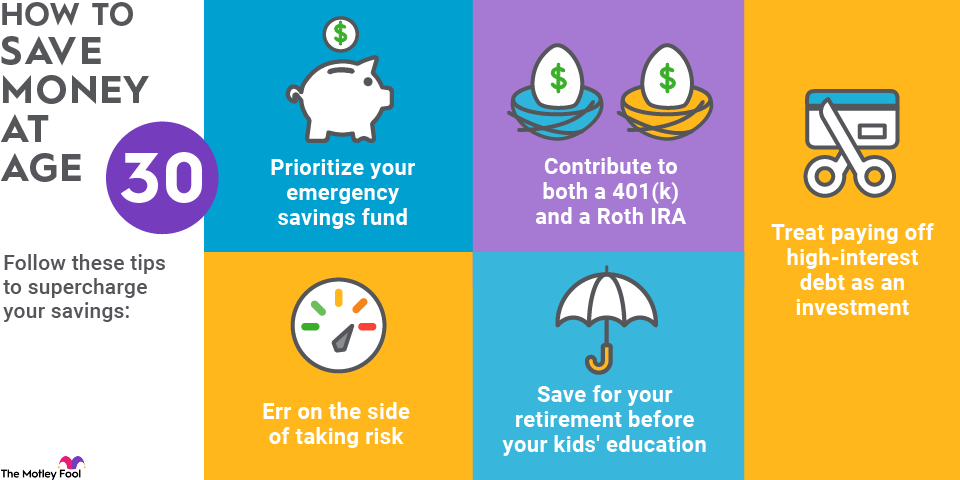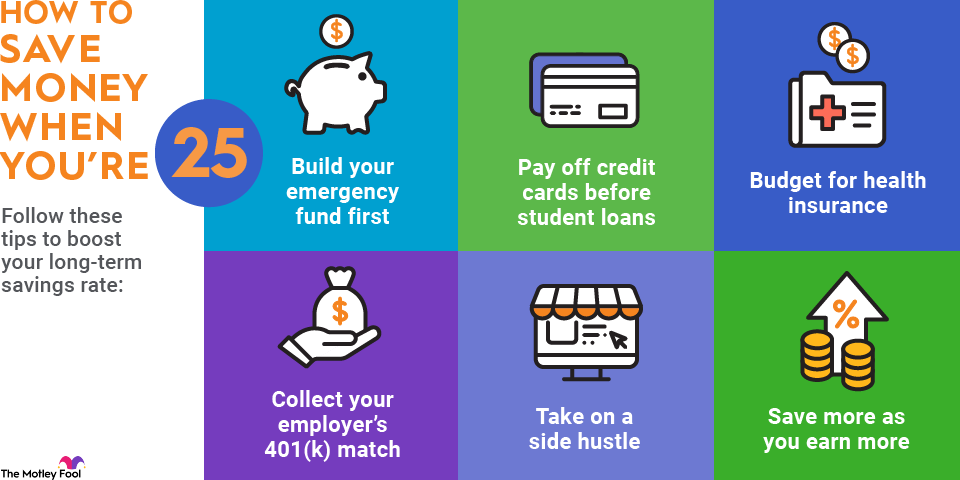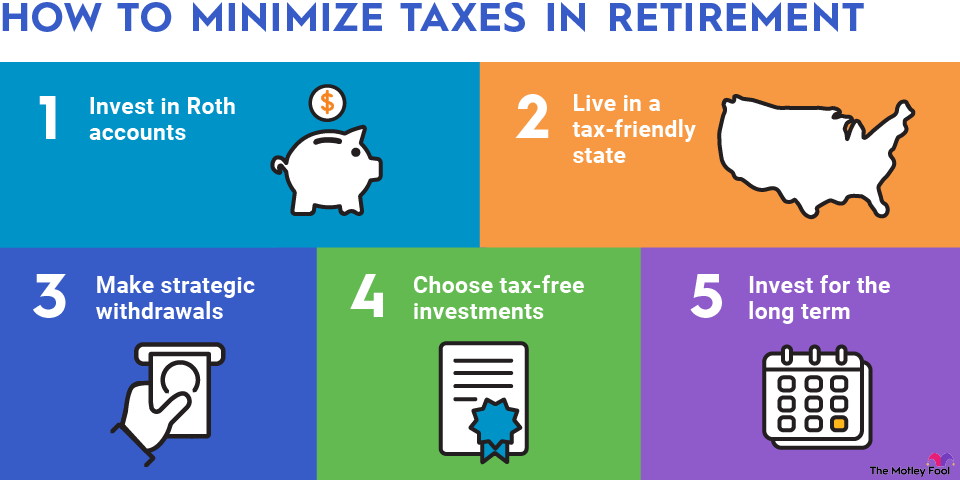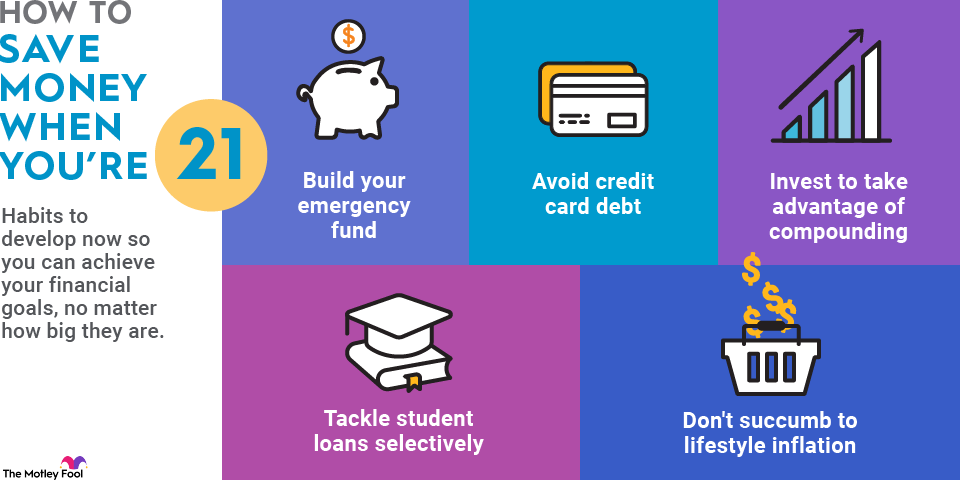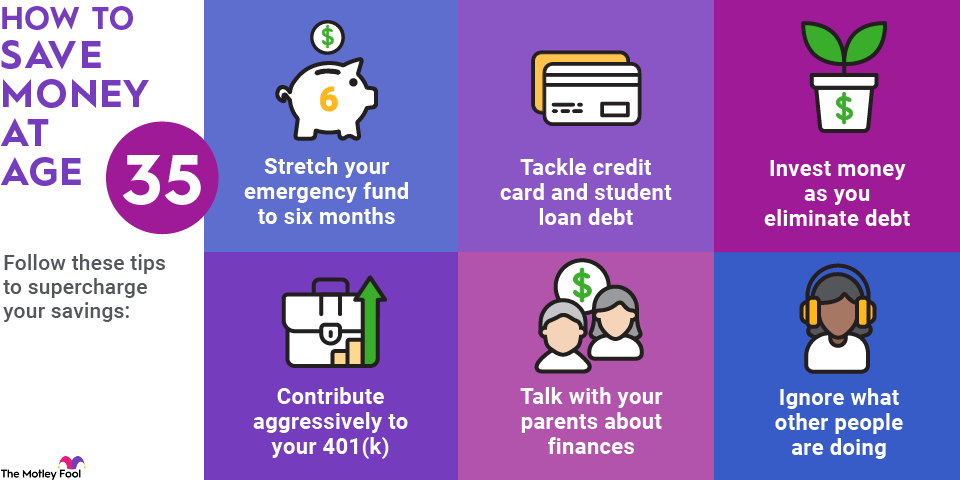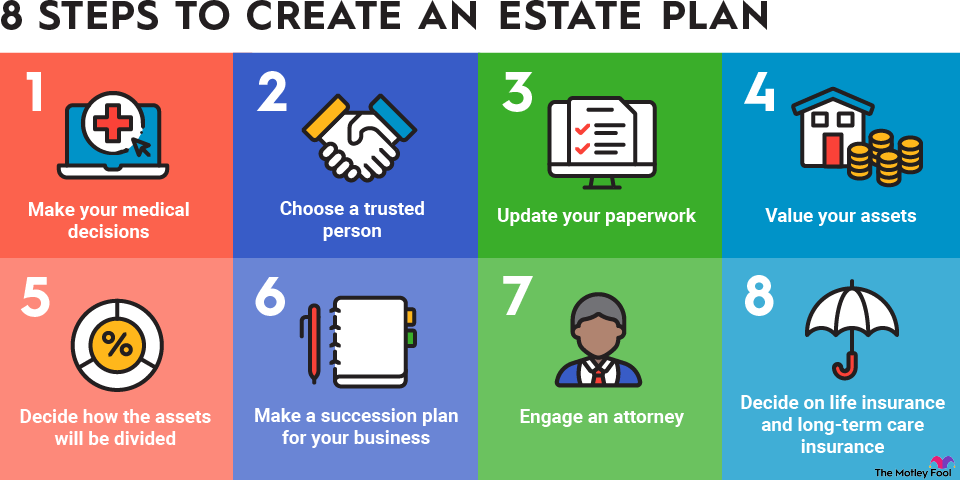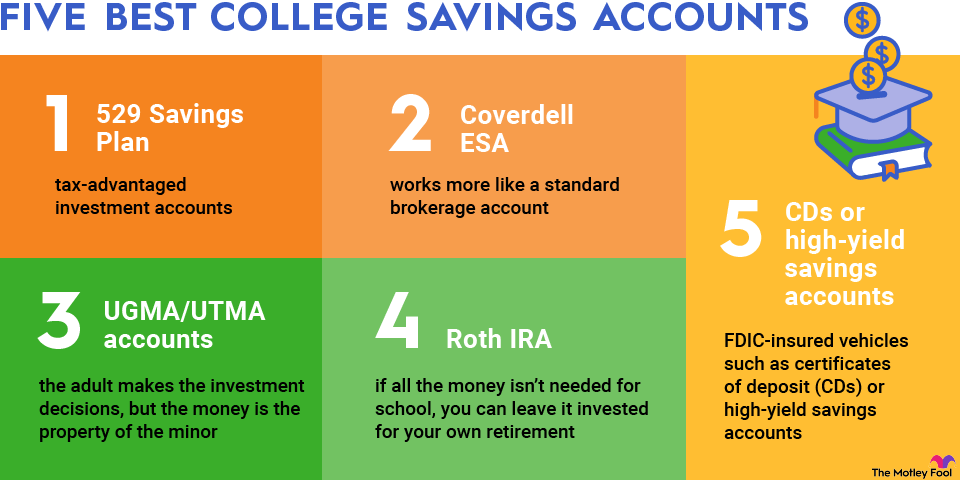Many of us look forward to it for decades -- retirement! In this retirement planning guide, we'll cover everything you need to know about the financial side of it. You'll have the information you need to meet your retirement goals and stop working when you want.

If your retirement is here or around the corner, you need to read up on a bunch of retirement planning topics, so that you can make smart moves that keep costs down and let your nest egg last as long as possible.
The following topics are covered:
- Healthcare costs: Find out how much you'll need and how to save for it
- Inflation: Learn how to manage how far your money will go over time
- Social Security: Know how much to expect, how to decide when to take it, and how to increase benefits and avoid reductions
- The best-case scenario: You have enough saved to retire
- The medium-case scenario: You have nearly enough saved to retire
- The worst-case scenario: You don't have enough saved to retire
- Annuities: Decide if this type of guaranteed retirement income is right for you
- Early retirement: See if you could call it a career ahead of schedule
- Taxes in retirement: What you need to plan for and how to minimize taxes
- The non-financial side of retirement
- Seeking professional help
Healthcare costs
Find out how much you'll need and how to save for it
Let's start with healthcare costs, as they're easy to overlook, and failing to plan for them can lead to disaster in retirement. Also, they tend to be steep. According to a 2025 estimate from Fidelity, a 65-year-old can expect to spend an average of $172,500 on healthcare and medical expenses during retirement, excluding Medicare and long-term care costs. (A 35-year-old can save that much by socking away about $1,750 in a health savings account (HSA) annually for 30 years, earning a 7% average annual return.)
Fortunately, there are ways to reduce your healthcare costs, such as maintaining a healthy lifestyle and visiting your doctor for preventive screenings and care.
You can also make use of flexible spending accounts (FSAs), which let you sock away up to $3,400 per year (as of 2026) on a pre-tax basis to be spent on qualifying healthcare expenses, such as eyeglasses, dental care, certain medications, and doctor visits. The only catch is that most of that money is in the account on a use-it-or-lose-it basis.
The aforementioned Health Savings Accounts are even better, as unused contributions aren't forfeited. Instead, they can remain in the HSA account and can even be invested -- and in retirement, they can be withdrawn penalty-free to be used for anything (though the money will count as taxable income).
The HSA contribution limit for 2026 is $4,400 for individuals and $8,750 for families. The 2025 HSA contribution limits are $4,300 for individuals and $8,550 for families. Those 55 and older can contribute an additional $1,000 for each of those years. To be able to participate in an HSA, you'll need to have a qualifying high-deductible health insurance plan.
It's also smart to read up on Medicare since it offers a lot of coverage, beginning at age 65. Don't be late to sign up, though, or you may be charged extra for it for the rest of your life.
Inflation
Learn how to manage how far your money will go over time
It's important to factor inflation into your retirement planning. After all, if your retirement is 20 years away and you aim to save $1 million for it, that $1 million won't have the same purchasing power in 20 years as it does today.
Over long periods, inflation has averaged about 3% annually, though in some years it can be much higher or lower. That kind of rate can shrink the buying power of your dollar roughly in half over 25 years.
You might combat the effects of inflation by holding a lot of dividend-paying stocks, because those dividends tend to be increased from year to year, helping you keep up with inflation -- and the stock price of the stocks themselves is likely to rise over time, too.
If you have, say, $100,000 invested in dividend payers with an overall average yield of 3%, you'll receive $3,000 in dividend income this year. If those payouts grow by an annual average of 5%, in 10 years, they will be generating close to $4,900 per year.
Other ways to fight inflation include investing in Treasury Inflation-Protected Securities (TIPS) bonds, which adjust their interest rates to account for inflation, and buying annuities with inflation-adjustment features built in.
The best-case scenario: You have enough saved to retire
Now let's look at a few scenarios: the best-case, middle-case, and worst-case ones if you're planning to retire soon. In the best-case scenario, you'll have saved enough money to retire comfortably, a sum that will provide enough income throughout your retirement.
What's enough? Well, how much money you need to retire with differs for different people, since it's based on your health, your expected longevity, your lifestyle, your location, and more.
If you're trying to determine how much money you need to retire, try thinking about it in terms of annual income instead of a big blob of cash. One rule of thumb is that in retirement, we should aim to live on 80% of our pre-retirement income. That's a rough guide, though.
If you expect to be much more active post-retirement than pre-retirement, perhaps doing a lot of international travel, you may need more. Similarly, if you suspect you might be in poor health and may require a lot of costly care, you may need more. If, instead, you expect to be mostly gardening, walking, and reading, you could get by with less.
Consider all your sources of income, and remember that you may be able to add more sources, such as some passive income. Typical sources of income for many people include Social Security, pension income, dividend income, interest income, annuity income, and rental property income.
If you determine that you'll need $60,000 annually in retirement and you expect $25,000 from Social Security and $15,000 from annuities, that leaves $20,000 in needed income. You can invert and use the 4% rule to convert that into a needed nest egg by multiplying it by 25. (That's because dividing 1 by .04, or 100 by 4, results in 25.) Doing so gives you $500,000.
The medium-case scenario: You have nearly enough saved to retire
A more likely scenario for many people is that they approach retirement with almost enough money. If that looks like you, what can you do? Well, you have some options. A good one is simply delaying retirement and continuing to work at your current job. That offers several benefits:
- You can save and invest more money.
- You'll be delaying taking anything out of your nest egg to live on.
- Your nest egg will have a little longer to grow, untapped.
- You'll end up having to support yourself in retirement for fewer years.
- You may be able to enjoy your employer-sponsored health insurance a little longer, saving some money.
You might also try semi-retiring for a few years. See if you can cut back the hours you work at your current job, perhaps to half-time. Or go ahead and retire from that job, but generate some income via a side gig or two. There are lots of side jobs you might try, such as driving for a ride-sharing company, selling handicrafts online, tutoring kids, pet-sitting, or freelance work.
The worst-case scenario: You don't have enough saved to retire
In the worst-case scenario, you simply won't have enough money socked away to retire comfortably. If it's any comfort, you're not alone: A third of workers have saved less than $50,000 for retirement, according to a recent study.
So, what can you do? Don't retire now or soon, if you can help it. Try to work at least a few more years than you wanted to, and if you can, work all the way to at least age 70. At that age you'll max out your Social Security, which can help to partially offset a lack of retirement savings.
If your full retirement age for Social Security is 67 and you delay starting to collect until age 70, your benefit checks should be 24% larger. That can turn what would have been a $2,000 check into a $2,480 one, upping your annual benefits from $24,000 to nearly $30,000. Starting to take Social Security benefits at age 70 will also take some financial pressure off you at that point, perhaps permitting you to work less.
Think outside the box a bit, too. You may consider renting out some space in your home on a long-term basis. If a renter pays you, say, $1,000 per month, that's $12,000 in annual income. You might also relocate -- to a smaller, less costly home, a less costly part of the country, or even to another country.
Annuities
Decide if this type of guaranteed retirement income is right for you
While they may not be right for everyone, annuities could be worth considering for your retirement. By opening an annuity, you can set yourself up to receive regular income for the rest of your life. A downside of them is that the money you spend to buy them is typically gone and won't be around for you to leave to heirs, although this depends on the annuity.
It's generally best to focus on fixed annuities, which can start paying you immediately or on a deferred basis, at a future point that you specify, while avoiding variable annuities and indexed annuities, since they tend to have more restrictive terms and may not be as good a deal.
Learn more about annuities before buying one, but you can get an idea of the kind of income fixed immediate annuities offer from the examples below.
Person/People | Cost | Monthly Income | Annual Income Equivalent |
|---|---|---|---|
65-year-old man | $100,000 | $646 | $7,752 |
65-year-old woman | $100,000 | $619 | $7,428 |
70-year-old man | $100,000 | $729 | $8,748 |
70-year-old woman | $100,000 | $689 | $8,268 |
65-year-old couple | $200,000 | $1,122 | $13,464 |
70-year-old couple | $200,000 | $1,224 | $14,688 |
75-year-old couple | $200,000 | $1,367 | $16,404 |
To get an idea of what a deferred annuity might offer, know that a 65-year-old woman would have recently been able to spend $100,000 for an annuity that would start paying her in five years, offering $828 per month for the rest of her life. Deferred annuities can be useful tools to help you avoid running out of money later in life.
In times of higher interest rates, annuity contracts will offer bigger payouts. When rates are low, consider a "laddering" strategy, where you spend just a portion of the amount you want to spend on annuities first, and then spend another portion in a year or two, when you hope interest rates will be higher, and so on.
Early retirement
See if you could call it a career ahead of schedule
While most people have not saved enough for retirement yet, and many enter retirement with too little saved, there's another group of people -- those who have saved and invested aggressively and have a sizable nest egg. Those folks may be able to retire early.
If you're among those ranks and haven't thought of retiring early, give it some consideration. After all, we only live once, and you don't know how long your life will be. You may be able to start collecting Social Security at 62 and retire then (or earlier), with sufficient income to live on -- including ample contingency funds for healthcare and other potential needs. Early retirees tend to be in better health than later retirees, meaning they're more able to be active and enjoy pastimes such as travel, gardening, golf, tennis, and others.
An early retirement may be especially possible for you if you're still quite young. By ramping up your saving and investing, you may reach your retirement goals sooner. The table below shows what might be accomplished:
Growing at 8% for | $10,000 invested annually | $15,000 invested annually | $20,000 invested annually |
|---|---|---|---|
3 years | $35,061 | $52,592 | $70,122 |
5 years | $63,359 | $95,039 | $126,719 |
10 years | $156,455 | $234,682 | $312,910 |
15 years | $293,243 | $439,864 | $586,486 |
20 years | $494,229 | $741,344 | $988,458 |
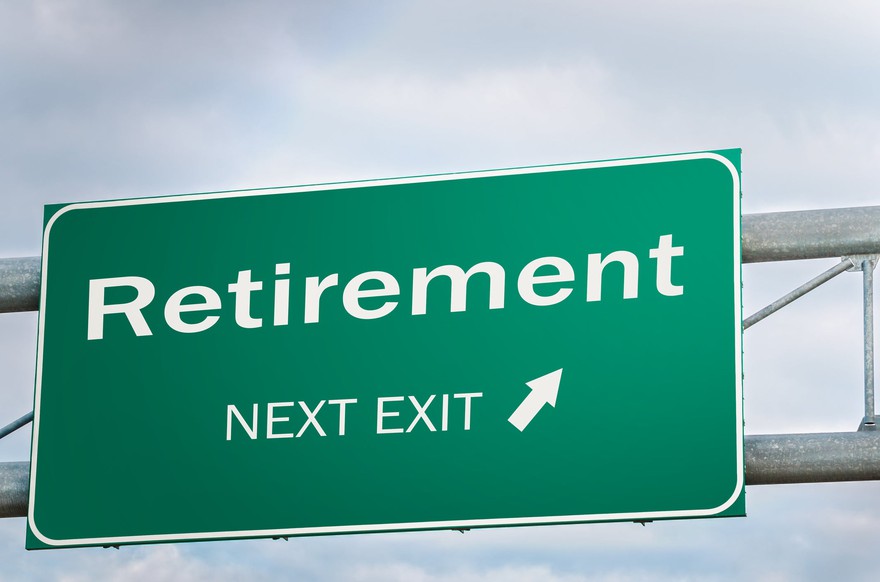
Taxes in retirement
What you need to plan for and how to minimize taxes
Another key concern in retirement is taxes. Here's what you need to know:
- Social Security: Your Social Security income may be taxed if your income crosses a certain threshold.
- Traditional IRAs and 401(k) accounts: The traditional forms of these retirement savings accounts allow you to contribute money on a pre-tax basis, thereby reducing your taxable income in the year of contribution. In exchange for that upfront tax break, your withdrawals in retirement will be treated as taxable income. (Note that your tax bracket in retirement may be lower than your bracket when you were working.)
- Roth IRAs and Roth 401(k) accounts: These accounts offer no upfront tax break, but if you play by the rules, you can withdraw money from them in retirement -- tax-free. That's because you were already taxed on the funds you contributed.
- Investment income: Your other investments face taxes, too. Short-term capital gains (from investments held for a year or less) are taxed at your ordinary income tax rate, while long-term capital gains get taxed at 0%, 15%, or 20%. Dividend income from most stocks held for more than 60 days is generally taxed at 0%, 15%, or 20%, as well.
- Interest income: Most interest income is treated as ordinary income and is subject to taxation. Treasury bonds and bills only face federal taxes, while corporate bonds are generally taxable at the federal, state, and local levels. Municipal bonds tend to be tax-free at the federal level.
The non-financial side of retirement
As you plan for your retirement, venture outside the financial realm a bit and think about how you will spend your days. Many retirees are surprised to discover that they feel a bit restless and perhaps even depressed once they no longer have the structure of their working days, and they have lost the opportunities to socialize with others that work offers, as well.
Aim to stay active physically and socially when you're retired, and you might start getting into some activities and groups even before you retire, to help make the transition to retirement smoother. Staying fit and healthy can keep you happier, too, and should keep healthcare costs down. Exercise and volunteering are some activities that keep most people's spirits up.
Related retirement topics
Seeking professional help
Finally, since retirement planning is so vital -- and can be so complicated -- don't avoid getting help. It can be well worth employing a financial advisor to review your finances, make recommendations, and help you understand how to best manage your money throughout retirement. A good advisor may even save you much more than you pay for their services. Ask around for strong recommendations of advisors or find a local fee-only advisor via the National Association of Personal Financial Advisors (NAPFA) website.
Don't leave your retirement up to chance, hoping for the best. Spend some time learning about and planning for retirement, in order to enjoy yours fully, with minimal financial stress.





